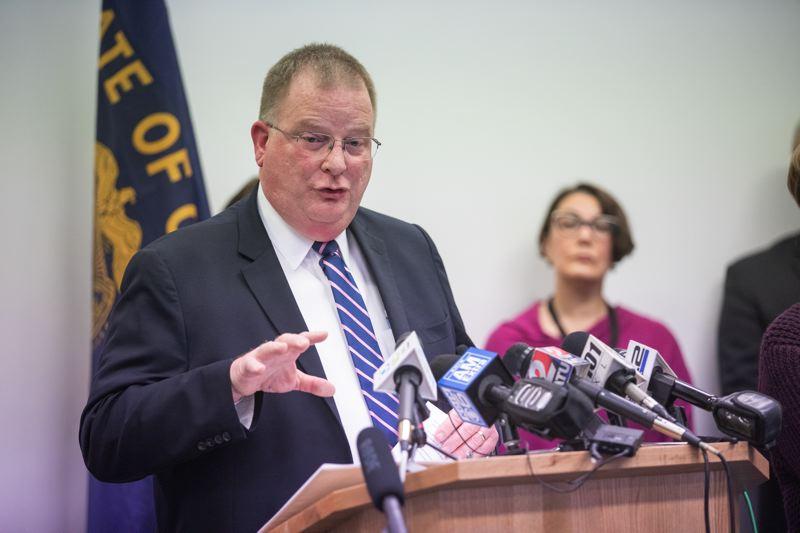
Scientists know little about Omicron but they expect it to emerge in Oregon this week.
“We know almost nothing about Omicron,” Patrick Allen, director of the Oregon Health Authority told the Oregon Health Policy Board on Tuesday. He said there has been a lot of “supposition and speculation” in the media that is “well-informed” but not definitive.
He said the “emerging data points” are not enough to allow scientists to make any conclusions about Omicron. “But those data points seem to indicate that it’s more contagious, seem to indicate that it’s less virulent, seem to maybe indicate that vaccines continue to be protective,” Allen said.
But one problem is that a lot of the scientific information is coming from South Africa, which has a young population with a low vaccination rate.
The world has only known about Omicron for about two weeks. Since it was first identified in southern Africa, it’s been detected from Canada to Asia and Europe to Australia. It’s also turned up in dozens of U.S. states, including Washington and California.
This week, scientists working on Oregon State University’s wastewater project, which has been tracking the spread of Covid across the state, will start to look for Omicron in those samples.
“I would be shocked if we didn’t have Omicron turn up (there) or in regular sequencing,” Allen said.
Regardless when Omicron emerges, Allen said the state would persist in trying to get as many people vaccinated as possible.
About 73% of adults in the state have received two shots, and 23% have gotten a booster.
“We’ve seen pretty brisk uptake particularly in boosters,” Allen said. “We’re now up to 20,000 overall doses a day, including first doses, second doses and boosters.”
The state has opened a dozen vaccine sites around the state in fairgrounds and other places that can administer up to 2,000 shots a day. Allen said these are focused on underserved communities that were hard hit by the pandemic.
“We’re seeing good uptake there,” Allen said. “Everything is about where we would expect it to be in terms of vaccination.”
He also updated the board on the state’s plan to offer a digital vaccine card, which will be voluntary. It will be offered to people to keep it on their phone to show where proof of vaccination is required.
He said the state will not require that people get the card and will not require that they show it.
Oregon Capital Chronicle is part of States Newsroom, a network of news bureaus supported by grants and a coalition of donors as a 501c(3) public charity. Oregon Capital Chronicle maintains editorial independence. Contact Editor Les Zaitz for questions: [email protected]. Follow Oregon Capital Chronicle on Facebook and Twitter.